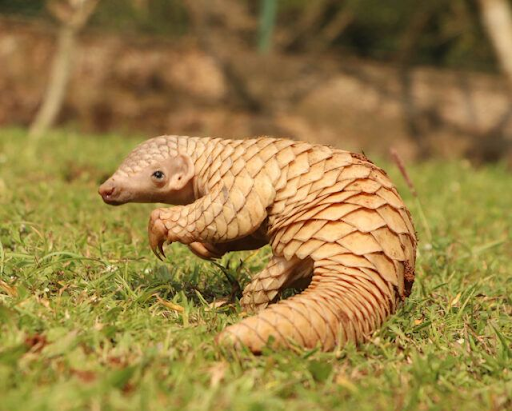World Pangolin Day: India tops Seizure Incident’s List
What’s the news?
- On World Pangolin Day (celebrated every third Saturday in February), Wildlife organization ‘Traffic’ that works to help study, monitor, and influence action to curb illegal wildlife trade, has compiled data that shows over 1,141 Pangolin confiscations involving both African and Asian pangolin species, have taken place in Asia from 2015-2021.
News in detail
- Between 2015-2021, India topped the list of seizures with 287 incidents, while Mainland China topped the list of seizures by volume (93,500 kgs) and individuals (5,600) of the threatened pangolins, the most trafficked wild mammal in the world.
- The data showed that as many as 21,857 whole pangolins were seized, dead or alive; 3,33,515 kgs of whole pangolins or parts were seized and of these, 78% seizures were pangolin scales.
- A whopping 82% seizures were made in Asia with maximum incidents recorded in India (287) followed by Vietnam (242), Mainland China (239), Indonesia (117) and Malaysia (56).
- The period 2017-2019 saw some of the largest confiscations, mostly involving African pangolin scales which saw over 609 seizure incidents in Asia, accounting for 244,600 kg scales and 10,971 individuals.
- Pangolin confiscations from 2020-2021, however, showed a dip from previous years.
- According to “Traffic”, Continued closer scrutiny on poaching, trafficking and illegal trade, as well as dedicated efforts to end these threats are paramount for the survival of all pangolins.
About Pangolin
- Pangolins, sometimes known as scaly anteaters,[5] are mammals that have large, protective keratin scales, similar in material to fingernails and toenails, covering their skin; the only known mammals with this feature.
- Pangolins are nocturnal and live in hollow trees or burrows, depending on the species.
- There are eight species of pangolins found in two continents, four each in Africa and Asia ranging from “Vulnerable to Critically Endangered”.
- The four species found in Asia: Indian pangolin (Manis crassicaudata), Philippine pangolin (Manis culionensis), Sunda pangolin (Manis javanica) and the Chinese pangolin (Manis pentadactyla).
- The Chinese and Sunda species are now listed as Critically Endangered, the Indian and Philippine pangolins as Endangered, and the four African species as Vulnerable.
- Pangolins are the most trafficked mammal in the world with demand primarily in Asia and in growing amounts in Africa for their meat and scales.
- There is also demand in the United States for pangolin products, particularly for their leather to be used in boots, bags, and belts.
- Pangolins are in high demand for traditional Chinese and Vietnamese medicine in southern China and Vietnam because their scales are believed to have medicinal properties.
- Protection Status of Indian Pangolin (Manis crassicaudata): IUCN Red List: Endangered, CITES: Appendix-I, WPA 1972: Schedule I.

References:
- https://ahmedabadmirror.com/world-pangolin-day-india-tops-seizure-incidents-list/81821904.html
- https://www.worldwildlife.org/species/pangolin
- https://www.wwfindia.org/about_wwf/priority_species/threatened_species/indian_pangolin/
- https://www.iucn.org/news/secretariat/201610/what-does-new-trade-ban-mean-pangolin-conservation#:
Subscribe
Login
0 Comments
